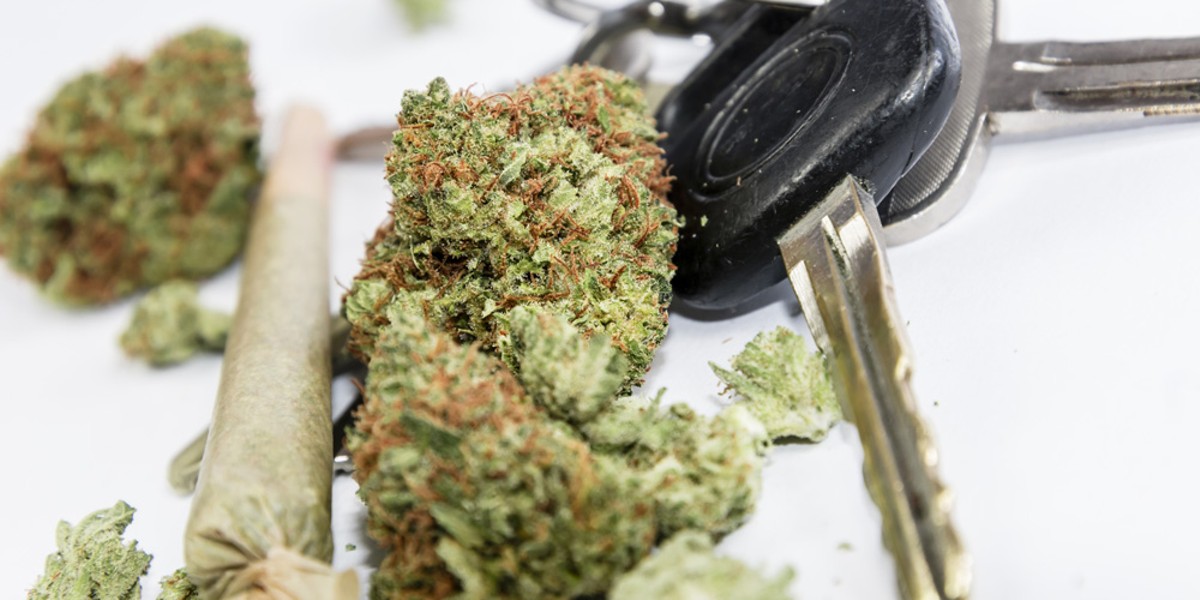Researchers at Washington State University are looking for a few brave volunteers to get really high in the name of public safety.
The study aims to develop a Breathalyzer to detect marijuana use to help police implement state law, which provides that drivers with five nanograms or more of THC in their bloodstream can be prosecuted for driving under the influence. That threshold is the same as the one in Colorado and was controversially excluded from California's Proposition 64, which passed in November and legalizes marijuana for recreational use.
The trouble is, scientists have yet to develop a roadside test that's as accurate as an alcohol Breathalyzer. It has proven challenging, in part, because marijuana stays in a user's system for weeks. Currently, most police agencies fall back on field sobriety tests — sometimes coupled with blood and urine tests — to try to arrest and convict stoned drivers, but successful prosecutions are rare. Most agree this will be the case until science can develop an accurate, convenient roadside test.
But those still have a long way to go. In part due to federal prohibitions under the Controlled Substances Act, scientific data correlating THC consumption and levels of impairment is still sorely lacking.
The Washington study stops short in that regard but simply seeks to determine if there's an easy way to tell how much THC is in someone's body in a few moments on the side of the road. The study will take volunteers — all 21 years or older — and begin with a blood test and a mouth swab to create a baseline. Volunteers will then purchase marijuana — whatever strain they choose from whatever state licensed retailer they prefer — and smoke it in the privacy of their homes. Researchers will then send taxis to pick them up and bring them to a local hospital to complete a second round of testing and they'll also be encouraged to undergo a field sobriety test conducted by local law enforcement.
The study was slated to take place during the last two weeks of May and the first two weeks of June, but researchers are still recruiting participants. According to multiple reports, they're having some trouble finding enough volunteers to fill out the study, despite offering to pay them $30 for the first hour and $10 for every additional hour of participation. Maybe getting really high only to be taken to the hospital and tested by a cop doesn't sound like that good a time.
In any event, while there certainly seems to be some merit in the study, it seems unlikely to solve the question of how high is too high to drive.
"There is understandably a strong desire by both lawmakers and the public to create legal limits for marijuana impairment in the same manner as we do with alcohol," Marshall Doney, head of the American Automobile Association, wrote in a 2016 analysis of the issue. "In the case of marijuana, this approach is flawed and not supported by scientific research. ... It is simply not possible today to determine whether a driver is impaired based solely on the amount of the drug in their body."
But if you find yourself reading this and really wanting to do your part for public safety and science, you're really hard up for weed and cash, or if a stoned hospital trip and some time with a state trooper sounds like a blast, don't fret. We Californians may get our chance in the near future.
Proposition 64 has a provision to set aside some of its anticipated $11 billion in state revenues over the next decade to fund training and research for law enforcement to crack down on impaired driving.
Thadeus Greenson is the Journal's news editor. Reach him at 442-1400, extension 321, or [email protected]. Follow him on Twitter @thadeusgreenson.


Comments (2)
Showing 1-2 of 2